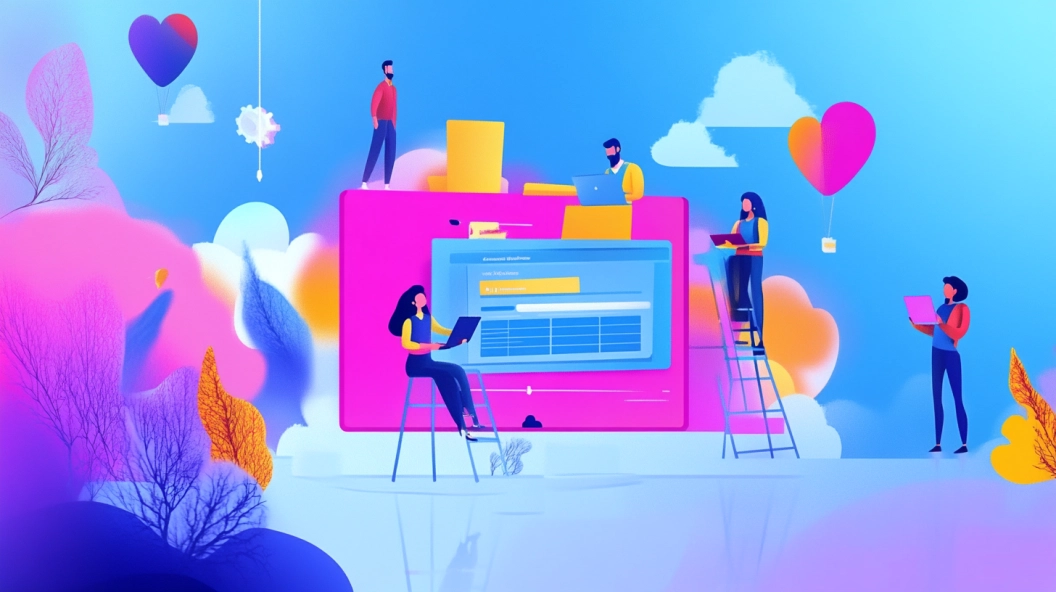How I Became Microsoft Azure Certified in Just 6 Months

I started my journey to become Microsoft Azure Certified with a simple goal: to enhance my skills and open new career opportunities. As a tech enthusiast, I wanted to dive deeper into cloud computing and modernize my expertise. The certification not only validated my knowledge but also set me apart in a competitive job market. Azure's growing demand made it an essential credential for anyone looking to excel in IT. This journey was about more than just passing an exam; it was about proving my commitment to professional growth.
Setting Clear Goals
Embarking on the journey to become Microsoft Azure Certified requires setting clear and achievable goals. These goals act as a roadmap, guiding you through the certification process. They provide a sense of direction and purpose, helping you prioritize your actions and decisions. Without them, it's easy to lose focus and prolong the process unnecessarily.
Defining Certification Objectives
Before diving into study materials, I took the time to define my certification objectives. This step was crucial in understanding what I wanted to achieve and how I planned to get there.
Understanding Certification Levels
Microsoft Azure offers various certification levels, each catering to different expertise and career paths. I started by researching these levels to determine which one aligned with my career goals. Understanding the differences between foundational, associate, and expert levels helped me choose the right path. This clarity ensured that I directed my efforts toward the most relevant certification.
Setting a Timeline
Once I understood the certification levels, I set a timeline for achieving my goal. I aimed to become Microsoft Azure Certified within six months. This timeline kept me accountable and motivated. It also allowed me to track my progress over time, providing a sense of achievement as I moved closer to my goal.
Creating a Study Plan
With my objectives and timeline in place, I created a study plan. This plan was my blueprint for success, outlining how I would allocate my time and resources.
Allocating Study Hours
I dedicated specific hours each week to studying for the Microsoft Azure Certified exams. Consistency was key. By setting aside regular study sessions, I ensured steady progress. This approach prevented last-minute cramming and reduced stress.
Balancing Work and Study
Balancing work and study was challenging but essential. I learned to manage my time effectively, prioritizing tasks and avoiding burnout. By maintaining a healthy balance, I stayed motivated and focused on my goal of becoming Microsoft Azure Certified.
Setting clear goals and creating a structured plan were vital steps in my journey. They provided clarity, focus, and a sense of accomplishment as I worked toward becoming Microsoft Azure Certified.
Choosing the Right Resources
Finding the right resources played a crucial role in my journey to becoming Microsoft Azure Certified. With so many options available, I needed to choose wisely to ensure effective learning and preparation. Here's how I navigated this process.
Online Courses and Tutorials
Online courses and tutorials became my go-to resources. They offered flexibility and a structured approach to learning. I explored various platforms to find the best fit for my needs.
Recommended Platforms
I discovered several platforms that provided excellent courses for Microsoft Azure certification. Udemy, Coursera, and edX stood out as top choices. These platforms offered comprehensive courses covering essential topics like Azure storage services, virtual networks, and computing building blocks. They also provided specialized courses for different certifications, such as AZ-900 and AZ-303. The variety of courses allowed me to tailor my learning experience to match my certification goals.
Course Selection Criteria
Selecting the right course required careful consideration. I looked for courses with high ratings and positive reviews from other learners. The course content needed to align with the certification objectives I had set earlier. I prioritized courses that included hands-on labs and practice exams, as these elements were vital for reinforcing my understanding and preparing for the real exam. By choosing courses that met these criteria, I maximized my chances of success in becoming Microsoft Azure Certified.
Books and Study Guides
In addition to online courses, books and study guides became valuable resources. They provided in-depth knowledge and served as reference materials throughout my preparation.
Essential Reads
I identified a few essential reads that were highly recommended by experts and fellow learners. These books covered core Azure concepts and offered insights into practical applications. They included titles like "Exam Ref AZ-900 Microsoft Azure Fundamentals" and "Microsoft Azure Architect Technologies and Design Complete Study Guide." These books helped me deepen my understanding of Azure and reinforced the knowledge gained from online courses.
How to Use Guides Effectively
To make the most of these study guides, I developed a strategy. I read each chapter thoroughly and took notes on key concepts. I also completed the practice questions at the end of each chapter to test my understanding. This approach ensured that I retained the information and could apply it during the certification exam. By integrating books and study guides into my study plan, I strengthened my preparation for becoming Microsoft Azure Certified.
Choosing the right resources was a pivotal step in my certification journey. By leveraging online courses and study guides, I equipped myself with the knowledge and skills needed to succeed. These resources provided a solid foundation for my path to becoming Microsoft Azure Certified.
Hands-On Practice

Getting Microsoft Azure Certified isn't just about studying theory. It's about rolling up your sleeves and diving into hands-on practice. This approach helps solidify your understanding and prepares you for real-world scenarios. Let me share how I set up my lab environment and tackled practical projects to enhance my learning.
Setting Up a Lab Environment
Creating a lab environment was a game-changer in my journey to becoming Microsoft Azure Certified. It allowed me to experiment and learn by doing, which is crucial for mastering Azure.
Tools and Software Needed
To set up my lab, I needed the right tools and software. I started with a subscription to Microsoft Azure, which provided access to a range of services. Microsoft offers a free tier for new users, which includes popular services and a $200 credit. This was perfect for getting started without breaking the bank. I also used tools like Azure CLI and PowerShell to manage resources and automate tasks. These tools are essential for anyone aiming to become Microsoft Azure Certified, as they provide hands-on experience with the platform.
Simulating Real-World Scenarios
In my lab, I focused on simulating real-world scenarios. This involved creating virtual networks, deploying virtual machines, and configuring storage solutions. By doing this, I gained practical insights into how Azure works in a business context. I also practiced troubleshooting common issues, which helped me understand the platform's intricacies. This hands-on experience was invaluable in preparing for the certification exams, where practical knowledge is often tested.
Practical Projects
Working on practical projects was another key aspect of my preparation for becoming Microsoft Azure Certified. Projects allowed me to apply what I learned and see the results in action.
Project Ideas
I brainstormed several project ideas to challenge myself. One project involved setting up a web application using Azure App Services. Another focused on creating a secure network architecture with Azure Virtual Network and Network Security Groups. These projects not only reinforced my learning but also showcased my skills to potential employers. They demonstrated my ability to use Azure effectively, which is a critical component of being Microsoft Azure Certified.
Learning from Mistakes
Mistakes are part of the learning process, and I made plenty along the way. Each mistake taught me something new and helped me improve. For instance, I once misconfigured a virtual machine, which led to connectivity issues. By troubleshooting the problem, I learned how to diagnose and fix similar issues in the future. Embracing mistakes and learning from them is essential for anyone on the path to becoming Microsoft Azure Certified. It builds resilience and deepens your understanding of the platform.
Hands-on practice was a cornerstone of my journey to becoming Microsoft Azure Certified. By setting up a lab environment and working on practical projects, I gained the skills and confidence needed to succeed. This approach not only prepared me for the exams but also equipped me with the expertise to excel in my career.
Joining a Study Group
Joining a study group played a crucial role in my journey to becoming Microsoft Azure Certified. It provided a supportive environment where I could learn and grow with others.
Finding the Right Group
Finding the right study group took some effort, but it was worth it. I explored both online and in-person options to see what fit best with my schedule and learning style.
Online vs. In-Person Groups
Online groups offered flexibility. I could join discussions from anywhere, which made it easier to fit into my busy life. Platforms like Discord and Slack became valuable tools for connecting with fellow learners. On the other hand, in-person groups provided face-to-face interaction, which helped build stronger connections. Both options had their perks, so I chose based on what worked best for me at the time.
Benefits of Group Study
Study groups offered several benefits. They created a safe space for asking questions and practicing participation. I found that discussing topics with others helped deepen my understanding. Group study also built accountability. Knowing that others relied on me kept me motivated and focused.
Group Study Techniques
Once I joined a group, we used various techniques to make our study sessions effective.
Sharing Resources
We shared resources like study guides, practice exams, and helpful articles. This collaboration enriched our learning experience. Everyone brought something unique to the table, which broadened our perspectives.
Peer Support and Motivation
Peer support became a key motivator. We encouraged each other and celebrated small victories. This camaraderie made the journey less daunting and more enjoyable. When I felt stuck, my peers offered insights and solutions, which kept me moving forward.
Joining a study group transformed my preparation process. It provided the support and motivation I needed to succeed in becoming Microsoft Azure Certified.
Utilizing Microsoft Resources
Tapping into Microsoft's official resources was a game-changer in my Azure certification journey. These tools provided structured guidance and expert insights that were invaluable.
Official Microsoft Learning Paths
Microsoft's learning paths offer a clear roadmap for certification. They break down complex topics into manageable sections, making it easier to grasp the material.
Navigating the Microsoft Learning Portal
I started by exploring the Microsoft Learning Portal. This platform is a treasure trove of courses, modules, and learning paths tailored to different Azure certifications. I found it easy to navigate, with a user-friendly interface that guided me through each step. The portal's structured approach helped me focus on specific areas, ensuring I covered all necessary topics.
Certification Exam Prep
For exam preparation, the portal offered practice tests and quizzes. These tools allowed me to assess my understanding and identify areas needing improvement. By regularly testing myself, I built confidence and familiarity with the exam format. This preparation was crucial for my success.
Microsoft Community and Forums
Engaging with the Microsoft community added another layer to my learning experience. It connected me with experts and fellow learners who shared valuable insights.
Engaging with Experts
The Microsoft Learn Community became my go-to place for expert advice. Here, I interacted with seasoned professionals who offered tips and answered questions. Their guidance helped clarify complex concepts and provided real-world perspectives on using Azure.
Asking Questions and Sharing Knowledge
Participating in forums allowed me to ask questions and share my own experiences. This exchange of knowledge enriched my understanding and kept me motivated. The collaborative environment fostered a sense of belonging and support, which was vital during challenging times.
By leveraging these Microsoft resources, I gained a comprehensive understanding of Azure. The combination of structured learning paths and community engagement equipped me with the skills needed to excel in my certification exams.
Overcoming Challenges
Every journey has its hurdles, and my path to becoming Microsoft Azure Certified was no different. I faced several challenges, but I learned to tackle them head-on. Let me share how I managed my time and stayed motivated throughout this process.
Time Management
Time management became crucial as I juggled work, study, and personal commitments. I had to make every minute count.
Prioritizing Tasks
I started by listing all my tasks and prioritizing them. I focused on the most critical tasks first, like studying for the certification exams. This approach ensured that I covered all exam objectives and didn't leave any surprises for the exam day. I used tools like to-do lists and calendars to keep track of my tasks. These tools helped me stay organized and focused.
Avoiding Burnout
Burnout was a real threat, especially with a packed schedule. I made sure to take regular breaks and give myself time to relax. This balance kept my mind fresh and ready to absorb new information. I also set realistic goals to avoid overwhelming myself. By pacing myself, I maintained a steady progress without feeling exhausted.
Staying Motivated
Staying motivated was essential to keep pushing forward, even when things got tough.
Tracking Progress
I tracked my progress regularly to see how far I'd come. This tracking gave me a sense of accomplishment and motivated me to keep going. I used charts and graphs to visualize my progress, which made it more tangible. Seeing my improvement over time boosted my confidence and reassured me that I was on the right track.
Celebrating Milestones
Celebrating milestones became a key part of my journey. I set small goals and celebrated each achievement, no matter how minor it seemed. These celebrations kept my spirits high and made the journey enjoyable. Whether it was completing a practice test or mastering a new concept, I took the time to acknowledge my efforts.
Overcoming challenges required determination and a strategic approach. By managing my time effectively and staying motivated, I navigated the obstacles on my path to becoming Microsoft Azure Certified. These strategies not only helped me succeed in my certification journey but also equipped me with valuable skills for future endeavors.
Exam Day Preparation

Preparing for the exam day was a crucial part of my journey to becoming Microsoft Azure Certified. I focused on strategies that would help me feel confident and ready.
Final Review Strategies
Practice Tests
I relied heavily on practice tests. They helped me understand the exam format and identify areas where I needed more focus. I took several practice exams, timing myself to simulate real exam conditions. This practice built my confidence and ensured I knew what to expect.
Last-Minute Tips
In the days leading up to the exam, I reviewed key concepts and notes. I avoided cramming new information. Instead, I focused on reinforcing what I already knew. I also made sure to get plenty of rest and eat well, keeping my mind sharp and ready.
Exam Day Tips
Staying Calm and Focused
On exam day, staying calm was essential. I arrived early to avoid any last-minute stress. Deep breathing exercises helped me stay relaxed. I reminded myself of all the preparation I had done, which boosted my confidence.
Post-Exam Reflection
After the exam, I took time to reflect on the experience. I noted what went well and what could be improved for future certifications. This reflection helped me learn from the process and prepared me for any future exams.
Author's Experience: "I sat for the Microsoft Azure Fundamentals exam, and this certificate greeted me soon after the exam! It turns out I passed."
These strategies ensured I was well-prepared and confident on exam day. They played a vital role in my success in becoming Microsoft Azure Certified.
Reflecting on my journey to becoming Microsoft Azure Certified, I feel a deep sense of accomplishment. The process taught me resilience and opened doors to new opportunities. My future plans include diving deeper into Azure's advanced features and possibly tackling more certifications.
For those considering this path, I encourage you to set clear goals and stay committed. Remember, every challenge is a step toward growth. Whether you're just starting or aiming for multiple certifications, embrace the learning process. Your dedication will pay off, and you'll find yourself equipped with valuable skills for the future.
See Also
Achieving Microsoft Certification: Azure AI Engineer Associate
Crafting a Path as a Microsoft Azure Developer
Transitioning to Cloud Careers with Microsoft Azure
Career Growth: Developer to Microsoft Architecture Specialist
